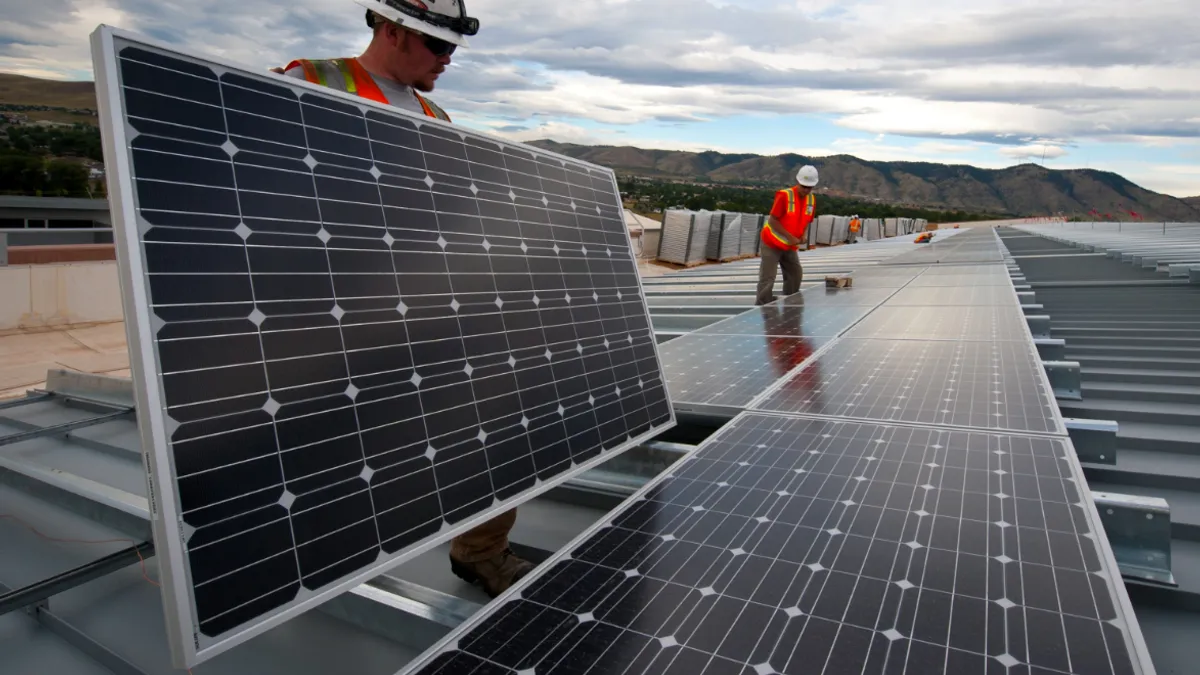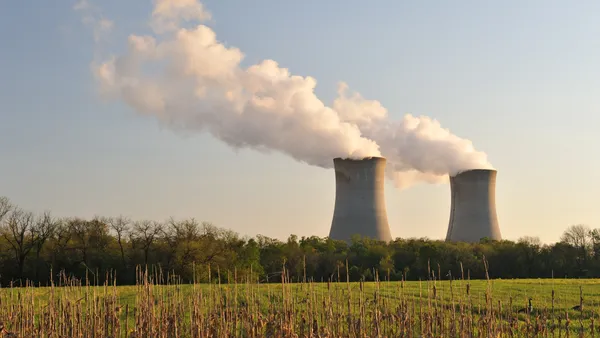Dive Brief:
- After a heated exchange, Arizona utility regulators voted 3-1 to block an investigation sought by Commissioner Robert Burns to evaluate potential outside influences on the utility ratemaking process.
- The decision came after three days of hearings on a rate case for utility UES Electric, which sought to impose mandatory demand charges on residential solar customers and cut down the retail remuneration rate for net metering in its territory.
- The Arizona Corporation Commission voted 4-1 to approve the UES rate case, raising the basic service charge for all customers and adding a monthly $1.58 fee on net metering customers to cover costs of additional meters. However, the ACC voted to delay a decision on net metering policy and demand charges for residential solar until after the cost-benefit analysis on distributed generation concludes in October.
Dive Insight:
After three days of intense debate, the ACC finally came to a decision regarding the UES Electric rate case and Commissioner Burns' push for an investigation into political influences on the current ratemaking process.
Though UES Electric's service territory is small (only 93,000 customers), many in the state expected its general rate case could set precedent for future decisions on the valuation of customer-sited resources like rooftop solar and rates for consumers with those technologies.
Earlier this year, UES, a sister company to Arizona utility Tucson Electric Power (TEP), filed a rate request with the Arizona Corporation Commission seeking approval for a three-part rate structure – energy, fixed and demand charges – for new solar customers, while leaving it as an option for non-solar customers.
The utility also proposed to drop net metering rates to a price closer to wholesale prices for utility-scale solar facilities.
From the beginning, UES sparked controversy with its proposal, and withdrew an earlier version in May that would have applied demand charges to all residential customers. Two other Arizona utilities have filed rate cases seeking to implement demand charges on all or a select group of ratepayers: TEP and Arizona Public Service Co.
The utility had hoped to secure approval for the new solar rates this week, but regulators opted to push off a final ruling, citing a ruling from an Administrative Law Judge, who in July recommended the ACC wait until the conclusion of a separate docket on the value of distributed solar before finalizing rate design for solar customers.
Utilities, concerned that rooftop solar customers do not pay their share for grid upkeep, have begun eyeing demand charges as a way to recover fixed costs from those consumers.
Arizona utilities have helped lead the trend, especially after public utility Salt River Project implemented a mandatory demand charge on its customers last year. But solar advocates claimed the move contributed to the 90% decline in new rooftop solar applications within its service territory.
Testimony on the UES rate case took up most of the three-day ACC hearing concluded Thursday, but after delaying that decision, regulators addressed Burns's call for an investigation.
Allegations of dark money cycling through the 2014 election from utilities and solar companies continue to dog the ACC and are the underlying basis for Burns' new inquiry. The Federal Bureau of Investigation interviewed former Arizona regulator Gary Pierce and utility officials last month as a part of a "long-term investigation related to the financing of certain statewide races in the 2014 election cycle."
In particular, APS was accused of contributing funds to an independent group supporting the campaigns of current Commissioners Tom Forese and Doug Little. A Sept. 2015 ACC filing raised those allegations during another controversial year that saw utilities propose to raise fees on rooftop solar customers and reduce net metering credits.
Those allegations led Burns, who is up for relection this year with SolarCity's support, to hire an outside attorney to investigate the ratemaking process last week, though he didn't name any particular targets. He has previously voiced frustration with Pinnacle West, the parent company of APS, for not disclosing political contributions.
But the meeting was anything but friendly, The Arizona Republic reported. In particular, Chairman Little told Burns he considered the inquiry a waste of time and degraded the commission.
"You've been basically impugning my integrity for a year," Little said to Burns, according to the paper.
Little, along with Commissioners Andy Tobin and Bob Stump voted to kill the contract for the invesigating attorney, but said Burns could spend money from his own office budget or subpeona financial records from APS on his own time.
"This is legal," Stump said of the dark money contributions. "It may not be nice, but only a change in the law will prevent it from happening again."
Correction: An earlier version of this post indicated sitting Arizona Corporation Commissioners have been interviewed by the FBI. That was incorrect. A former commissioner was interviewed.














